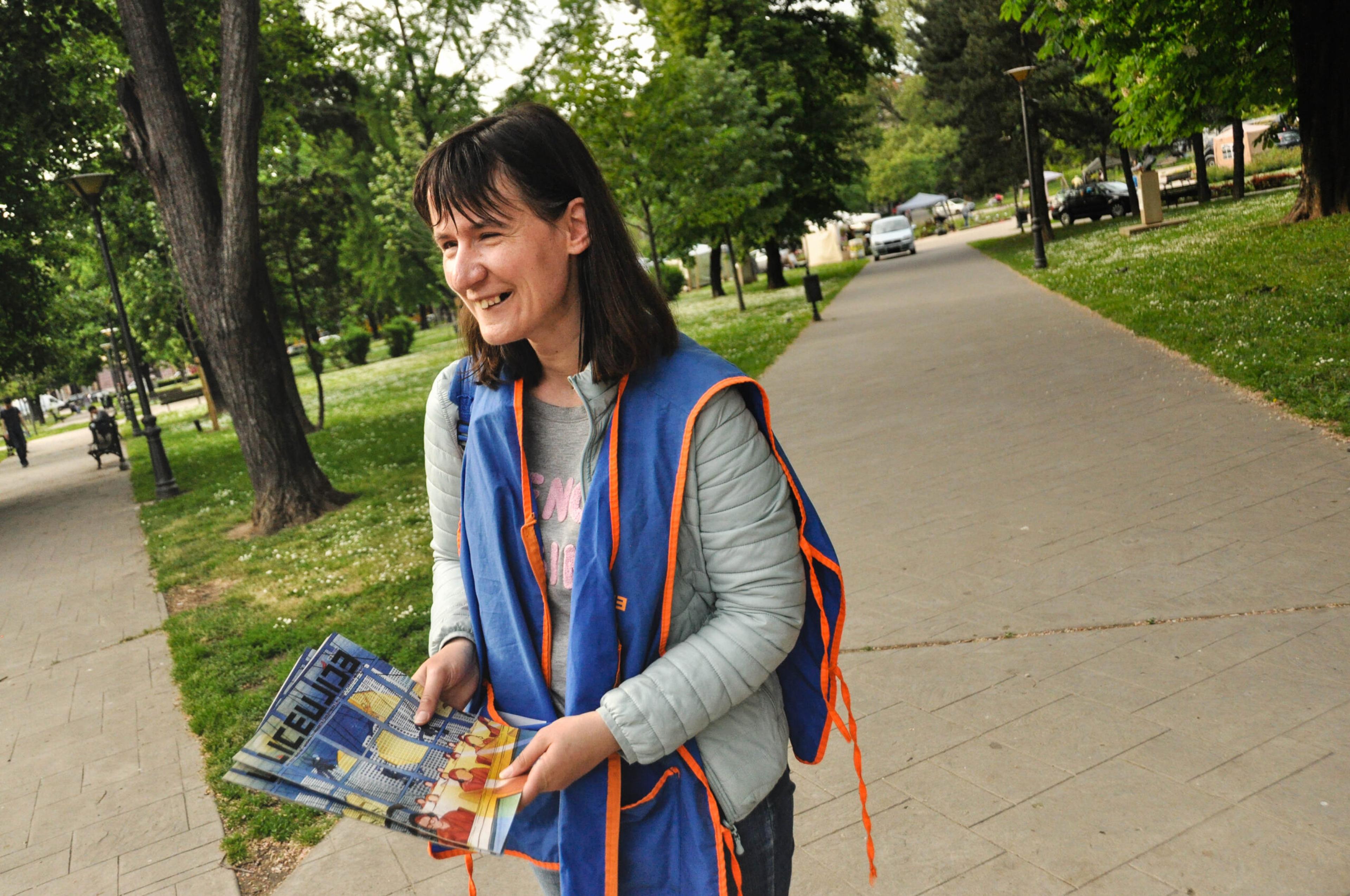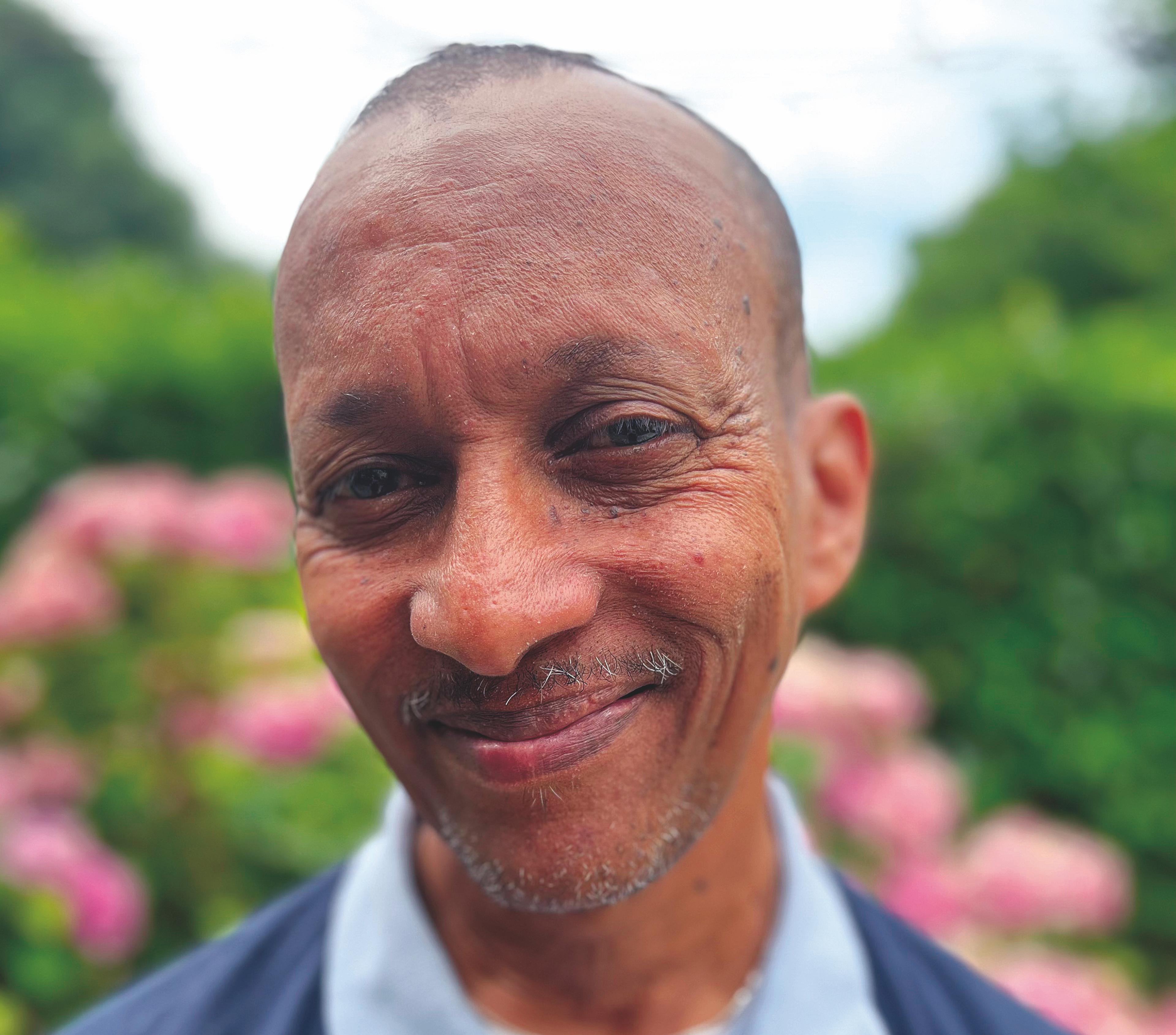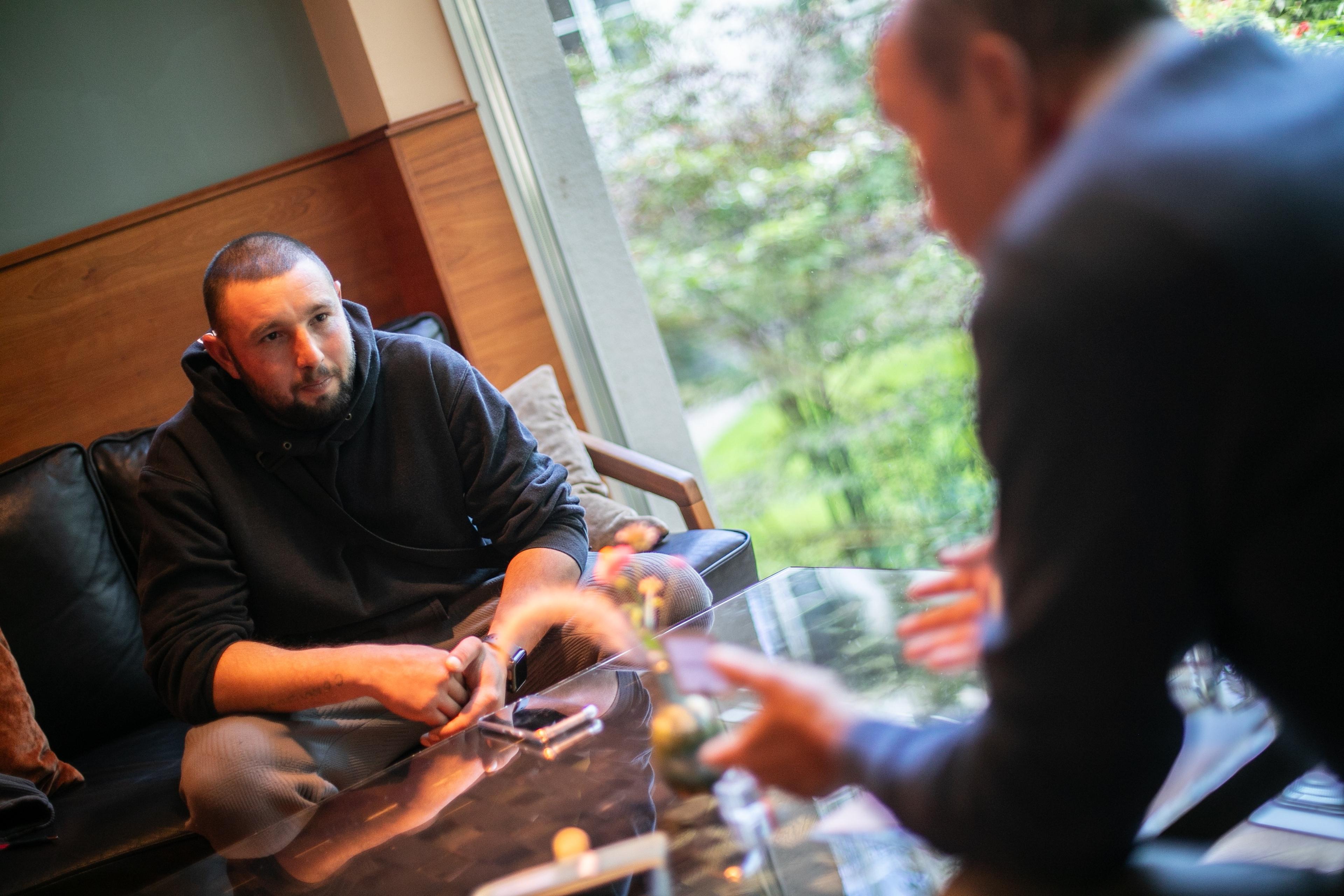Hecho en Bs. As. vendor Luciano ‘Bebu’ Saavedra: “You can’t put a price on freedom”
By Fernando Espósito
- Vendor stories
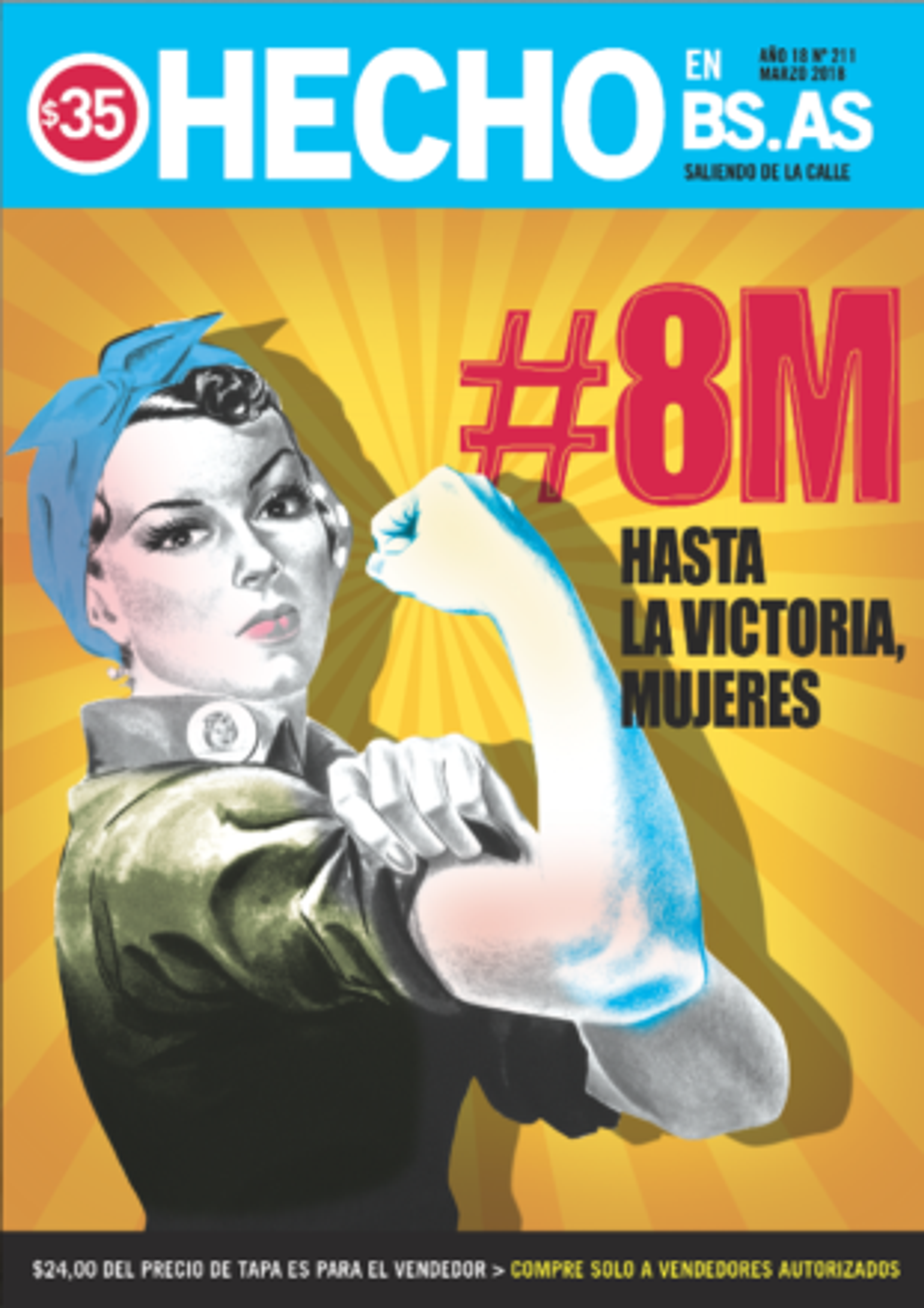
Luciano “Bebu” Saavedra can be found at the intersection of Rivadavia and Combate de los Pozos Streets in Buenos Aires selling the street paper. Here, he chats with Fernando Espósito – a former Hecho vendor – about homelessness, the desaparecidos (disappeared) of the last dictatorship, the current economic situation in Argentina, and the need to sell more papers.
Fernando Espósito: How did you get involved with Hecho en Bs. As.?
Bebu Saavedra: I worked for Ferrocarril Roca (Roca Railway) until I lost my job in 2003. Some friends who were coming to Hecho en Bs. As. brought me along with them, and they took me on here as a seller. I managed to start making some sales, despite how embarrassed I felt for not knowing how to approach people on the street. I was able to get over that, and I liked it. From then on, I never stopped. I bought myself some land, built myself a house and kept going. All thanks to Hecho en Bs. As. I’ve been working for nearly 20 years.
Were you ever homeless? Did you ever live in a ranchada?
[Note: the concept of 'ranchar' and 'ranchada' refers in this context to living in makeshift temporary shelters and to communities created by homeless people to support and protect one another.]
No, thank God, I didn’t go through that. I know a lot of people, I have many friends living on the streets, but I never had to go through that myself. Once I was invited to eat there, and I stayed for a couple of days, passing the time with friends. I have a family and children, they are my ranchada. I owe everything to my family. Were you ever homeless yourself?
Yes, I was homeless for about five years. During that time, it was difficult for me to get out of that particular situation. Meanwhile, I had to finish my university studies and that was really tough. But little by little, and with the help of Hecho en Bs. As., I managed it. What do you think is the main factor in getting off the street?
With a positive attitude, you can always get ahead – always, always, always, my friend. The street is not who you are.
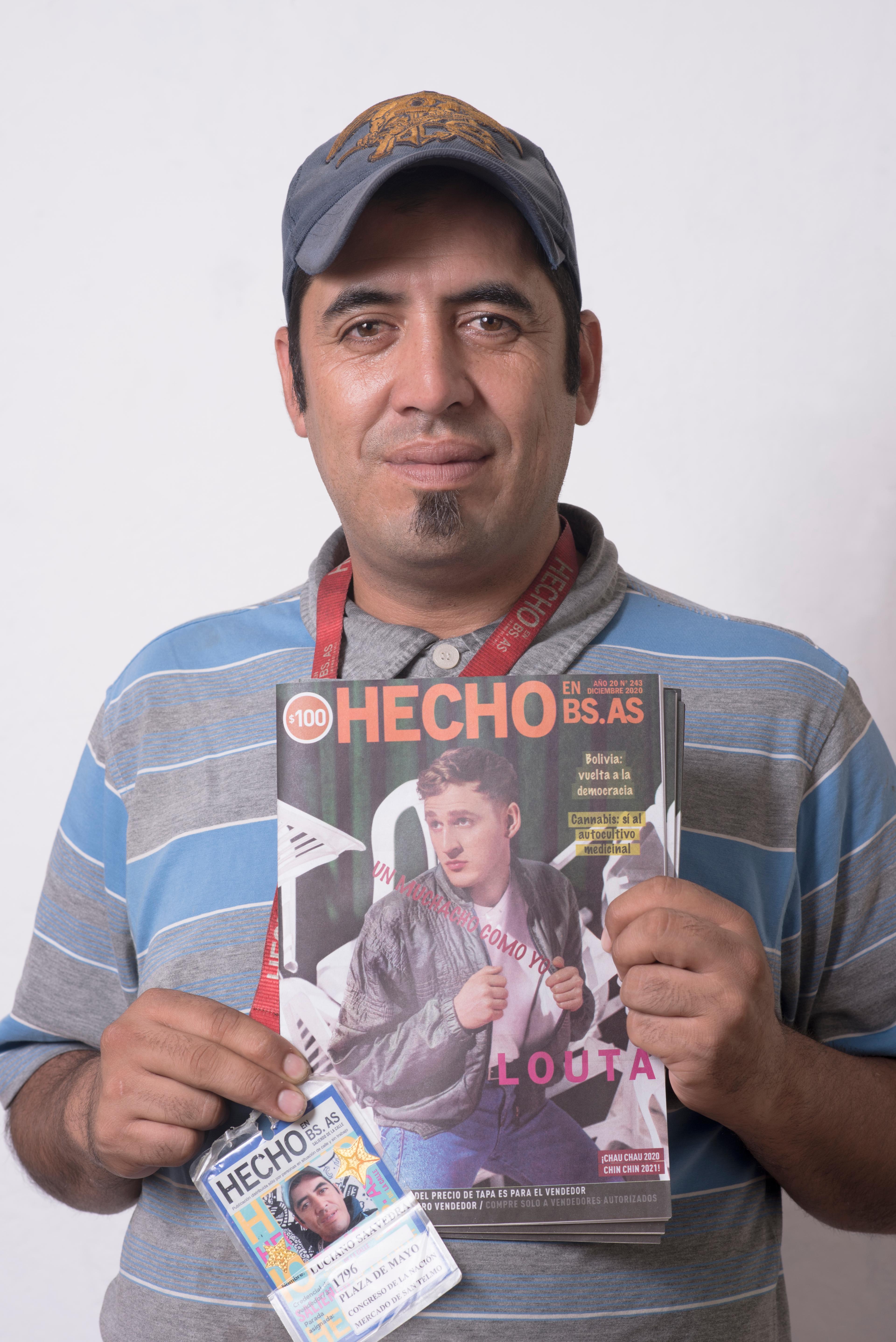
Photo by Eugenia Kais
We have just had the official month to commemorate those who were disappeared during the last civilian–military dictatorship. At that time, people who bothered those in power were disappeared. Today, it seems that the system wants to sweep homeless people under the rug. And if they could, they would make them disappear. It’s as though governments don’t want to solve the problem of homeless people. When Macri was Mayor of Buenos Aires, Fabián “Pepín” Rodríguez Simón created the UCEP (Public Space Control Unit), which went around removing ranchadas from the squares, always violently. After that, they also put up railings in public spaces. Do you think that homeless people are in this sense similar to the desaparecidos of the dictatorship?
I think that, if we were living in that time, we would be the first ones to be disappeared. They want us out of the way, they are always moving us on. It’s not fair, because we are human beings and citizens and yet they don’t respect our constitutional rights. Nobody in government is interested in the citizens, or their rights. They always look out only for themselves. We’re like a sort of nothingness. They don’t want people to see us. It annoys them that we beg, that we sell [magazines], and that people pay attention to us and help us. It seems that they want us to starve. And given that they can’t make us disappear, they move us on.
What are your hopes for the future?
For the future… My dream is to finish my house. I’m not interested any more in getting a formal job – you can’t put a price on freedom. I would like Hecho en Bs. As. to help me a bit more so that I can sell more copies. The economic situation of the country makes it more and more difficult to sell. It would be good to have interviews with musicians and famous people again, because those editions sell much better. And [it’s] also [important] to help homeless people more, so that they feel encouraged to sell the magazine. Just persuade them to give it a try.
Translated from Spanish via Translators Without Borders
Support our News Service
We believe journalism can change lives, perceptions, and society - underpinning democracy for a more equitable world. Learn more about the INSP News Service and how to support it here.
